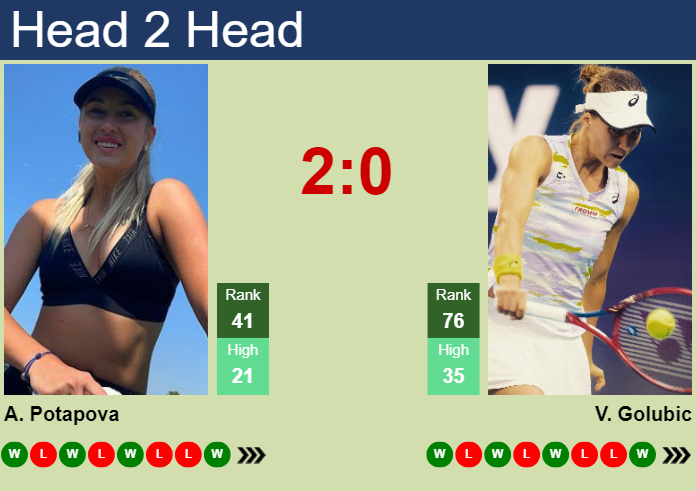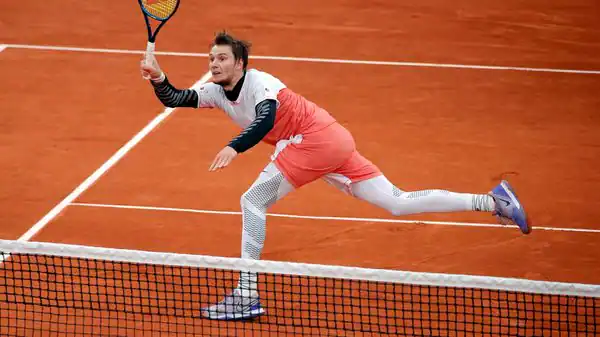There are many reasons the home and away record are helpful in predicting the outcome of sports.
A comfortable and familiar setting: When teams play in their homes, they are in familiar environments. This may enhance their comfort and increase their confidence. The court or field are well-known to them which can be an advantage.
Fan Support: Home team’s gain from the fans’ support. This can increase motivation. The energy of the crowd can impact the performance of the home team as well as intimidate the visiting side.
Travel Fatigue
Physical and mental fatigue The stress of traveling teams can result in physical and mental fatigue, as well as disruptions in their daily routines. This could have a negative impact on their performance.
The Time Zone: If you’re traveling for a long time and the time zone changes can disturb your sleep pattern and impact your overall performance.
Historical Trends
The historical home and away records reveal patterns. Some teams perform consistently better at home, whereas other teams struggle.
Specific Results for Venues Certain teams may have particular success in specific venues due familiarity or favorable circumstances.
Relevance of Statistics
With a huge sample size of home and away record is a good way to determine results. These records can reveal actual trends across many matches.
Comparative Analysis: A review of away and home performances could uncover discrepancies and give insight into the team’s overall flexibility and sturdiness.
Psychological Factors
The expectation of fans is high and can lead to pressure when playing at home. To maintain performance, teams must be able to manage the stress.
Comfort Level: In a home, players can feel more comfortable and relaxed. This can be beneficial to their performance.
The context of the match
The significance of a match could affect the home and away record. In some instances the performance of a team may increase regardless where it plays.
Opponent Quality: The quality of the opponent can also affect how much weight to give home and away records. The teams with the most strength could be able to counteract home advantage better than teams with weaker strengths.
External Factors
Weather Conditions. The weather in outdoor sports can be extremely different in different locations. This can affect performance. Teams based at home are more knowledgeable about local weather conditions.
Surface and altitude: Teams can be affected differently by differences in the playing fields (grass or clay, turf and so on.) and by their altitude, with the home team often being more accustomed to the conditions.
In the end the home and away records are vital for predicting sporting outcomes. The records are a great opportunity to get a better understanding of the dynamics of a team. They are especially useful when they are combined with other aspects like current form, injury status, and head-to -head records. An in-depth analysis, which includes both home and road records, is likely going lead to more precise predictions. See the most popular Best Tennis Predictions Today for website tips including tennis game predictions, french open prediction, tennis best bets today, roland garros prediction, last word on sports tennis predictions, predict tennis matches, oddsportal tennis, tennis picks predictions, australian open picks, atp tennis picks and more.

What Is The Importance Of Consider Tactical And Strategic Factors When Attempting To Predict Sporting Outcomes?
The importance of strategic and tactical focused considerations is crucial when trying to predict sport outcomes. They are the process of planning and implementation of game plans which capitalize on the strengths of a team, while focusing on the weaknesses of opponents. That’s why they’re vital: Maximising Strengths and minimising Weaknesses
Exploiting Matchups Effective tactics involve creating favorable matchups. For example the football team could use a quick winger against an inefficient full-back.
Affirming the Conditions: Strategies may change based on circumstances like weather, the playing surface or the venue. This helps to increase the team’s strength in specific situations.
Flexibility and adaptability:
In-Game Changes: Teams with the ability to modify their strategies during a match are likely to be more successful. This could include tactical changes as well as changing formations or altering defensive and offensive strategies according to the flow of the game.
Opponent’s Strategy: Teams who successfully counter the strategy of their adversaries are more likely to win. Anticipating the opponent’s tactic and analyzing it is a an effective way to defeat the opponent.
Defensive as well as offensive strategies
Defensive Organization – Strong defensive tactics like deep or high pressing can help stifle the offensive of your opponent. Teams that have organized defenses tend not to concede as many goals.
Even the most well-organized defenses can be defeated by a variety of attack strategies, such as quick counterattacks and possession-based plays.
Roles for players and teams
Clarity in Roles: Each player should be aware of their role in the team. This clarity will help you carry out the game plan more efficiently.
Key Players: Utilizing key players to maximise their impact for roles such as playmaker in midfield, or attack target player can be crucial.
Historical and Situational Analysis:
Past Meetings: Analyzing the tactics used by teams during the past can help to create strategies for the game.
Current Form: The tactical aspects must be in sync with the current team’s form and the player’s individual form. If the team’s style has changed, a strategy that worked in the past may need to be modified.
Psychological impact
Confidence comes from preparation. Teams that are well-prepared and clearly defined are more likely to perform with confidence. This mental edge could be crucial in games that are tight.
Effective tactics can frustrate the adversary and cause them to make mistakes or lose their morale. These are crucial.
Sport-Specific Considerations:
Soccer: The formations (4-3-3 vs. 3-5-2) and pressing styles are crucial. Set-piece techniques also have a part to play. The choice of tactics will determine if you are able to control midfield or exploit vast spaces.
Basketball: You need to be aware of strategies like zone defense against man-to-man, the speed of play, and offensive strategies such as pick-and-roll or isolation plays.
Cricket: Field locations as well as bowling rotations and the batting order can greatly affect the game’s outcome, particularly in various formats such as Test matches against. T20.
Coach and Management Influence:
Skills in tactical knowledge: The ability of a coach to comprehend the game, and devise and implement strategies that work, is often one of the major elements that affect the performance of a team.
Team Buy-In: The extent that players comprehend and accept the strategic plan affects its execution. The execution of strategy has to be carried out in a coordinated way.
It is clear that strategic and tactical considerations are crucial to the prediction of sporting outcomes. They influence all aspects of the sport from individual performance to team dynamics. The combination of a thorough understanding of tactics as well as the study of other variables such as injuries or form. will help you make precise predictions. Read the top rated Tennis Picks News for site tips including korda prediction, tennis picks and predictions, atp miami predictions, medvedev prediction, indian wells predictions, korda prediction, australian open predictions, atp picks, aus open predictions, tennis betting predictions and more.

What Is The Significance Of Public And Expert Opinions When Attempting To Predict The Outcome Of A Sport?
Public and expert opinions are a valuable source of information on the prediction of results in sports, however their value should be assessed in conjunction with other aspects and with a degree of caution. This is the reason they are important:
Diverse Perspectives: Public and expert opinions are a variety of perspectives, knowledge, and insights, which can offer valuable perspectives on factors influencing the game’s outcome.
Crowdsourcing knowledge: Combining the public and expert opinion can uncover patterns or trends which one’s own analysis might miss. This results in better forecasts.
Media Influence:
Public Perception. Public opinion and expert opinions can influence the mood and perception of a crowd, which can affect the morale of players or expectations of fans.
Media Coverage – Expert opinions are usually shared through mainstream media. This can influence public opinion as well as affect betting markets.
Expertise, Analysis and Research
Insider Knowledge – Experts who have direct experience in sports, such as former players, analysts, or coaches, can offer unique insights about the dynamics of teams and players.
Data Analysis: The expert opinion that are based upon advanced statistical analysis and advanced metrics can be used to provide more accurate assessments of player and team performance.
Market Influence
Markets for betting: The views of experts, especially those who are respected can influence the betting market. They may cause odds to change and reveal market attitude.
Oppositional Views: Expert views which are different from consensus opinions on betting markets could highlight value opportunities for those bettors looking for an alternative perspective.
Bias and excessive reactions
Confirmation bias: The beliefs of experts and the public are sometimes influenced by narratives or beliefs. These can lead to an underestimation or overestimation certain factors.
Emotional Factors : Biases based on emotion such as loyalty towards a team or player can affect judgement and result in subjective assessments that might not be consistent with objective reality.
Accuracy:
The track record of the accuracy and reliability of experts’ and public opinions over time can assist you in evaluating their accuracy in predicting sporting results.
Consensus Views and. Counterrian Perspectives examining various perspectives, such as both consensus views and counterrian perspectives, you can get a better comprehension of the issues at hand.
Integration with Other Factors
Complementary Analyses: Public opinion and the expert’s opinions should be considered in conjunction with other factors like team structure and player injuries. Strategies, statistical analysis, and analysis of tactical elements are all important.
Weighting of Opinions: assessing the reliability and credibility of different opinions can help in determining their importance in the prediction process.
In conclusion Expert and public opinion can offer valuable insights and perspectives in predicting outcomes in sports. They must, however, be critically evaluated and integrated into a complete prediction. While they may provide valuable analysis and context However, relying on only expert or public opinion without considering other aspects could lead to an incomplete or inaccurate